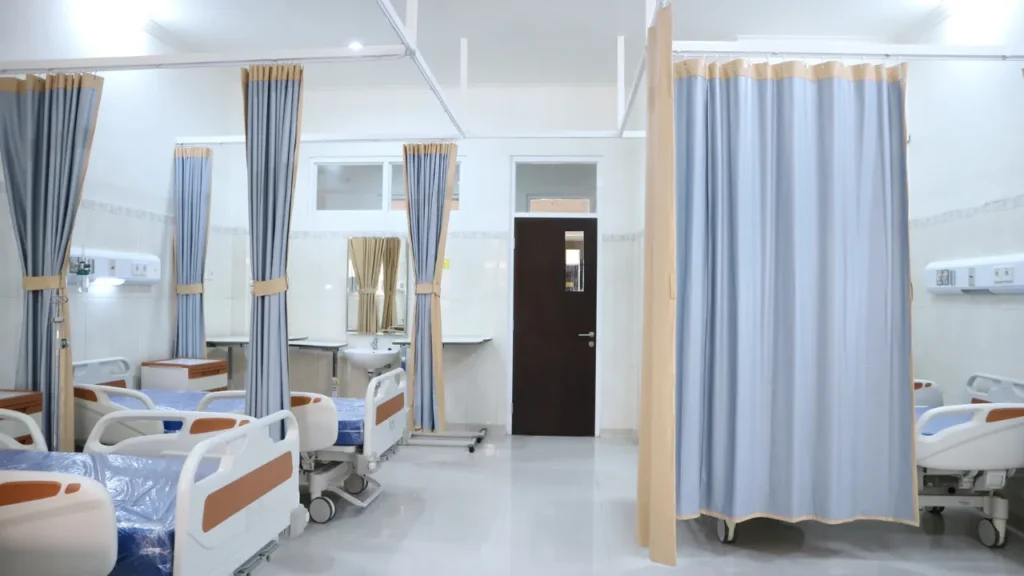The decision to place a loved one in a nursing home is a difficult one, made with the expectation that they will receive the care, dignity, and respect they deserve. Unfortunately, nursing home abuse is a harsh reality for many families across the United States. At Bigger Law, we are dedicated to advocating for the rights of nursing home residents and ensuring that justice is served for victims of neglect and abuse. If you suspect your loved one is a victim, do not hesitate to contact our experienced nursing home abuse lawyer team for a free case evaluation at 813-609-2992.
Nursing home abuse refers to any form of harm or neglect inflicted on elderly residents by caregivers, staff, or other residents. This abuse can take many forms, including physical, emotional, sexual, and financial exploitation. Neglect, which involves the failure to provide adequate care, is also a prevalent issue in nursing homes.
Our nursing home abuse lawyers at Bigger Law specialize in holding negligent facilities accountable for these heinous acts. By filing a claim, you can help stop the abuse and secure compensation for your loved one’s suffering.
Identifying nursing home abuse can be challenging, especially since many victims are unable or unwilling to speak out. Family members should remain vigilant for the following warning signs:
If you notice any of these signs, contact Bigger Law’s nursing home abuse lawyers immediately. Time is critical in protecting your loved one and building a strong case.

Federal and state laws, including the Nursing Home Reform Act, grant residents certain rights to protect their well-being. These rights include:
When these rights are violated, victims and their families have legal recourse. Our nursing home abuse lawyers are well-versed in these laws and will fight to ensure your loved one’s rights are upheld.
Navigating the legal system can be overwhelming, especially when dealing with the emotional toll of abuse. At Bigger Law, our team of dedicated nursing home abuse lawyers will guide you through every step of the process. Here’s how we can help:
Our lawyers will conduct a thorough investigation to gather evidence of the abuse, including medical records, witness testimonies, and surveillance footage.
We will file a claim against the responsible parties, whether it’s an individual caregiver, the nursing home facility, or both.
Many nursing home abuse cases are settled out of court. Our skilled negotiators will fight to secure maximum compensation for your family.
If a fair settlement cannot be reached, we are prepared to take your case to trial and present a compelling argument to the jury.
Victims of nursing home abuse may be entitled to compensation for:
At Bigger Law, we understand the profound impact of nursing home abuse on victims and their families. Our goal is to ensure you receive the justice and financial relief you deserve.

When seeking legal representation for a nursing home abuse case, it’s crucial to choose a law firm with a proven track record. Bigger Law stands out because of:
While holding perpetrators accountable is critical, prevention is always the best approach. Families can take proactive measures to minimize the risk of nursing home abuse and ensure their loved ones receive the care they deserve. Below are actionable steps to help safeguard your loved one’s well-being:
Before selecting a facility, research its history and reputation. Resources like Medicare’s Nursing Home Compare tool provide ratings based on health inspections, staffing, and quality measures. Visit potential nursing homes in person to assess cleanliness, staff demeanor, and overall atmosphere.
Frequent visits help you stay informed about your loved one’s condition and care. Regular contact also deters potential abusers, as they know someone is closely monitoring the resident’s well-being.
Developing a positive relationship with caregivers and nursing home staff can encourage better communication and foster accountability. A staff that feels appreciated may also be more inclined to provide attentive care.
Elder financial abuse is an often-overlooked form of nursing home abuse. Keep a close eye on your loved one’s financial accounts, and ensure there are safeguards against unauthorized access or transactions.
Educate yourself on the signs of abuse, neglect, and exploitation. Being proactive and knowledgeable allows you to identify and address potential issues early.
Familiarize yourself with the legal rights of nursing home residents under federal and state laws. Knowing these rights will empower you to advocate effectively for your loved one’s needs.
If you suspect abuse, act swiftly. Document evidence, report concerns to the nursing home administrator and appropriate authorities, and contact professionals, such as Bigger Law’s nursing home abuse lawyers, for legal guidance.
By staying engaged and informed, families can play a crucial role in preventing abuse and ensuring their loved ones receive the care and dignity they deserve. Prevention is not only possible but essential in creating a safer environment for all nursing home residents.
If you believe your loved one is a victim of abuse, take the following steps:

Nursing home abuse is a betrayal of trust that no family should have to endure. At Bigger Law, we are committed to holding perpetrators accountable and securing justice for victims. By working with our experienced nursing home abuse lawyers, you can take the first step toward protecting your loved one and preventing further harm.
Don’t wait—call us at 813-609-2993 or complete the free case evaluation form today.
Sources:
National Center on Elder Abuse (NCEA)
The NCEA provides comprehensive information and statistics on elder abuse, including neglect and exploitation in nursing homes. Their resources can help identify the signs of abuse and understand elder rights.
Link: https://ncea.acl.gov/
Centers for Medicare & Medicaid Services (CMS)
The CMS oversees nursing homes and provides regulations and data related to nursing home care quality, resident rights, and abuse prevention under the Nursing Home Reform Act.
Link: https://www.cms.gov/
U.S. Administration for Community Living (ACL)
The ACL advocates for older adults’ rights and offers resources on elder justice, nursing home standards, and reporting abuse.
Link: https://acl.gov/